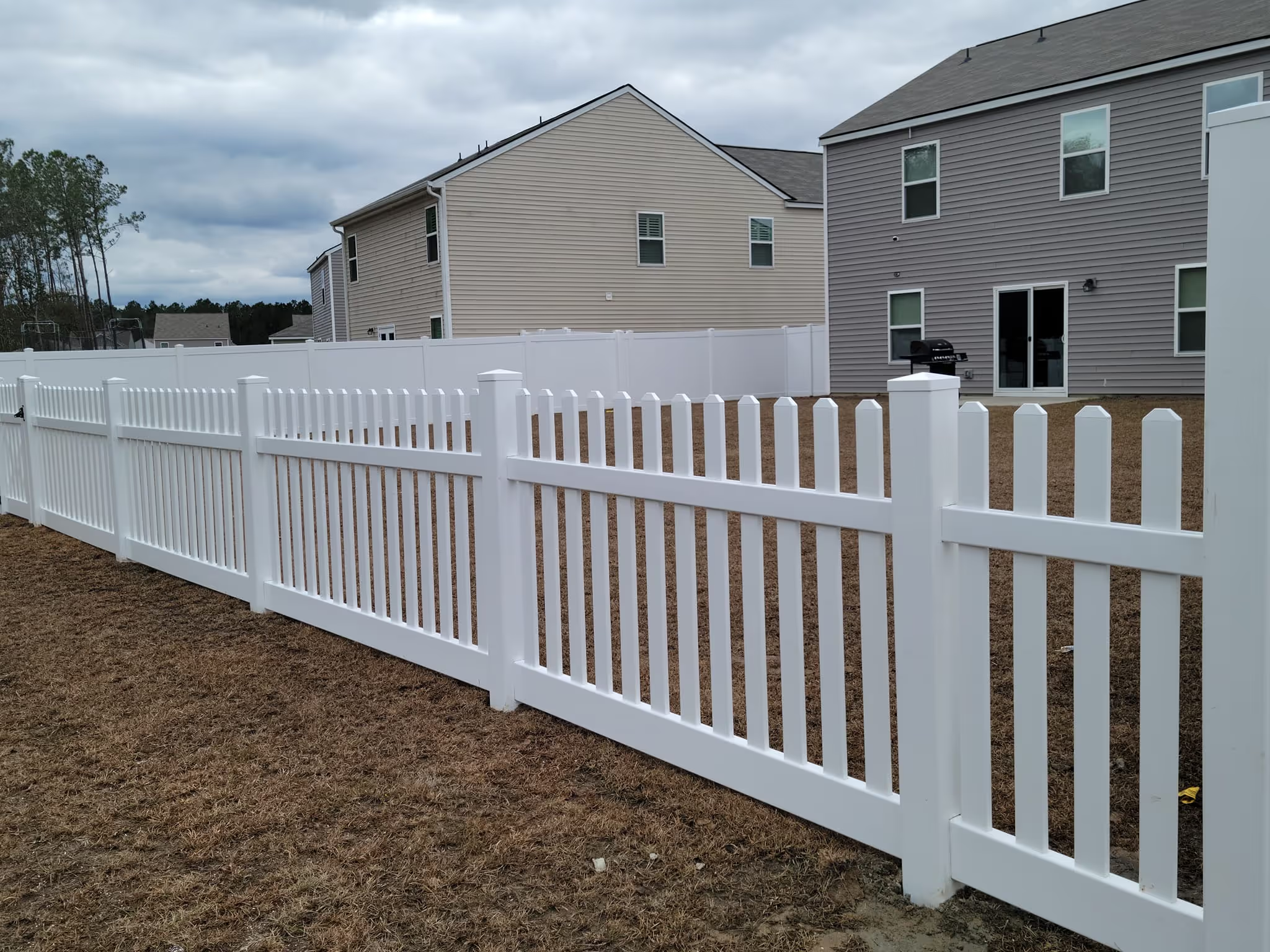Vinyl Fencing
Vinyl fence offers long-lasting durability with almost no maintenance. It’s ideal for homeowners who want strong privacy and a clean, modern look.
Privacy, security, and curb appeal—all built to match your home and your neighborhood.
For over 20 years, Tri-State Fence & Deck has installed code-compliant residential fences across South Jersey, Southeastern Pennsylvania, and Northern Delaware. Fully licensed and insured, we build fences that not only look great but stand the test of time.


Find the fence style that matches your home’s needs for privacy, security, and curb appeal.

Vinyl fence offers long-lasting durability with almost no maintenance. It’s ideal for homeowners who want strong privacy and a clean, modern look.

Lightweight but strong, aluminum fencing is perfect for open-view layouts and pool areas. It resists rust and holds its color through every season.

Wood fence delivers a warm, natural appearance with customizable styles. It’s a great fit for homeowners who want traditional charm and flexible design options.

A practical and affordable way to secure your property. Chain link fencing is reliable, low-maintenance, and excellent for pets and large yards.

Ranch or agricultural fencing is wide-open, functional, and perfect enough for larger properties or decorative perimeter layouts.

Homeowners in South Jersey and Southeastern PA often look for fences that meet local codes, improve privacy, and fit naturally into suburban neighborhood layouts. These options are shaped by real search intent in your region.
Patios near pool areas in NJ and PA must follow strict BOCA and township-level safety rules. We help you understand the height, spacing, and latch requirements so your fence is both safe and compliant. If you're planning around patios or near pools, you can create a more private outdoor living area.
Many South Jersey townships have specific rules for how close a fence can be to a property line. Our team helps you interpret local setback guidelines so your fence is placed correctly and avoids neighbor disputes.
Homes in South Jersey communities often sit close together, making privacy a top priority. A well-designed fence can block sightlines, reduce noise, and make your backyard more comfortable for your family.
If you want a safe space for dogs to play, the right fence makes all the difference. We build secure enclosures that keep pets in and wildlife out, while maintaining visibility and airflow.
Our Residential Installation Process
Our goal is simple: to make your project easy, clear, and stress-free.

We visit your property, take measurements, review your township rules, and create a written proposal with a clear scope and timeline.

Once your 50% deposit is received, we order materials, begin permitting, and start your project. Most installations begin within 2–3 weeks.

We inspect the finished fence together and issue your 3-year workmanship warranty.
Which Fence Material Is Right for You?
Picking the right fence really comes down to what matters most in your day-to-day life — maybe it’s privacy, maybe it’s style, or you just want something that won’t turn into a weekend chore. The table below gives you a quick side-by-side look at how each material compares. No matter which one you choose, every fence we build is measured, designed, and installed to local code, backed by our 3-year workmanship warranty and more than two decades of experience in South Jersey.
Seeing your property in person helps us measure accurately, understand the terrain, and recommend the best fence for your layout. It also helps you visualize materials, styles, and placement.
Most townships require a permit, especially for privacy fences or anything near a pool. We help you understand what your town needs and guide you from start to finish.
A well-built fence improves curb appeal, adds privacy, and defines your yard—all important to buyers. The right fence can make your home more attractive on the market.
Check your deed or property survey. If you’re unsure, a licensed surveyor can confirm your lines before installation.
Yes. Each town sets different requirements for how close a fence can be to a property line or structure. We help you follow your township’s rules so your project is compliant.
Think about maintenance, privacy level, budget, durability, and the overall look you want. We walk you through each option during your consultation.
Browse a few of our local installations, or explore the full gallery for more ideas.



Tell us about your project, and we’ll help you get started.